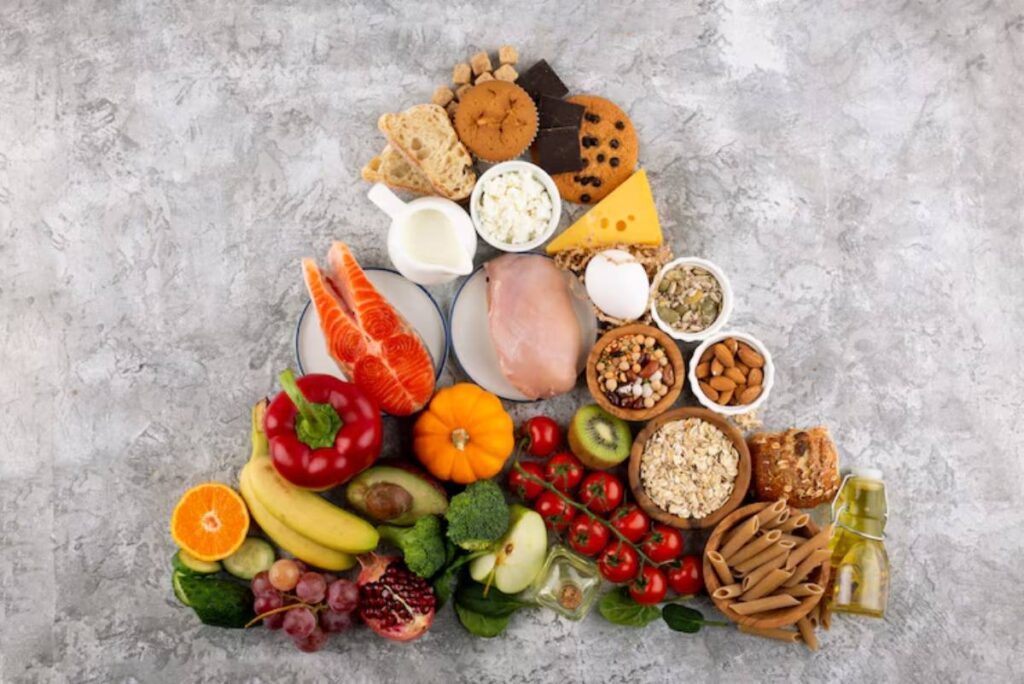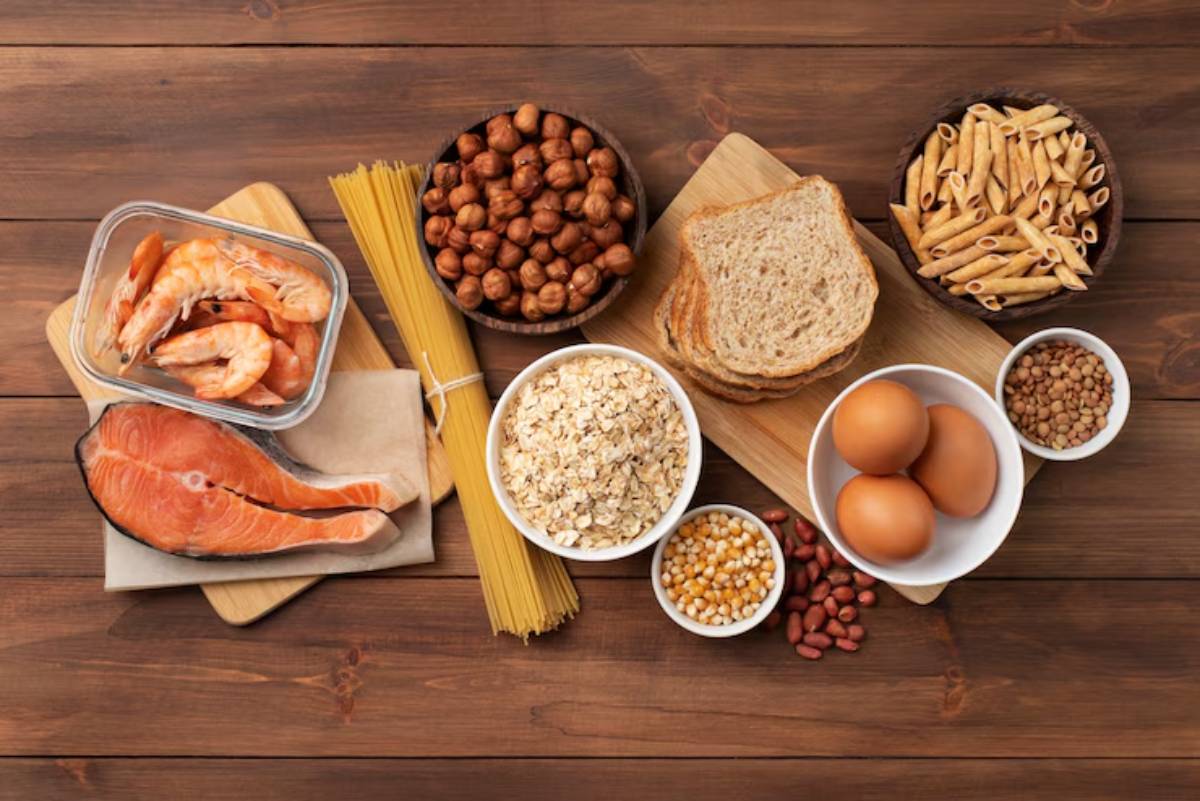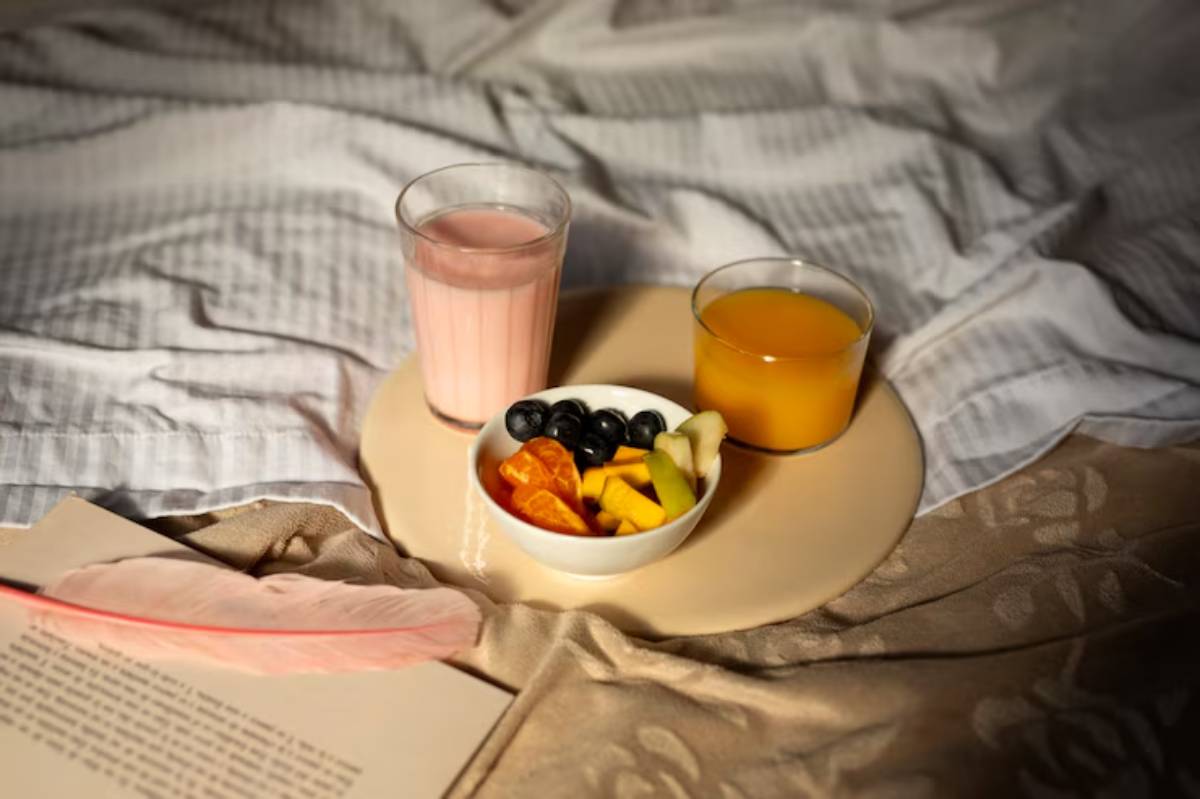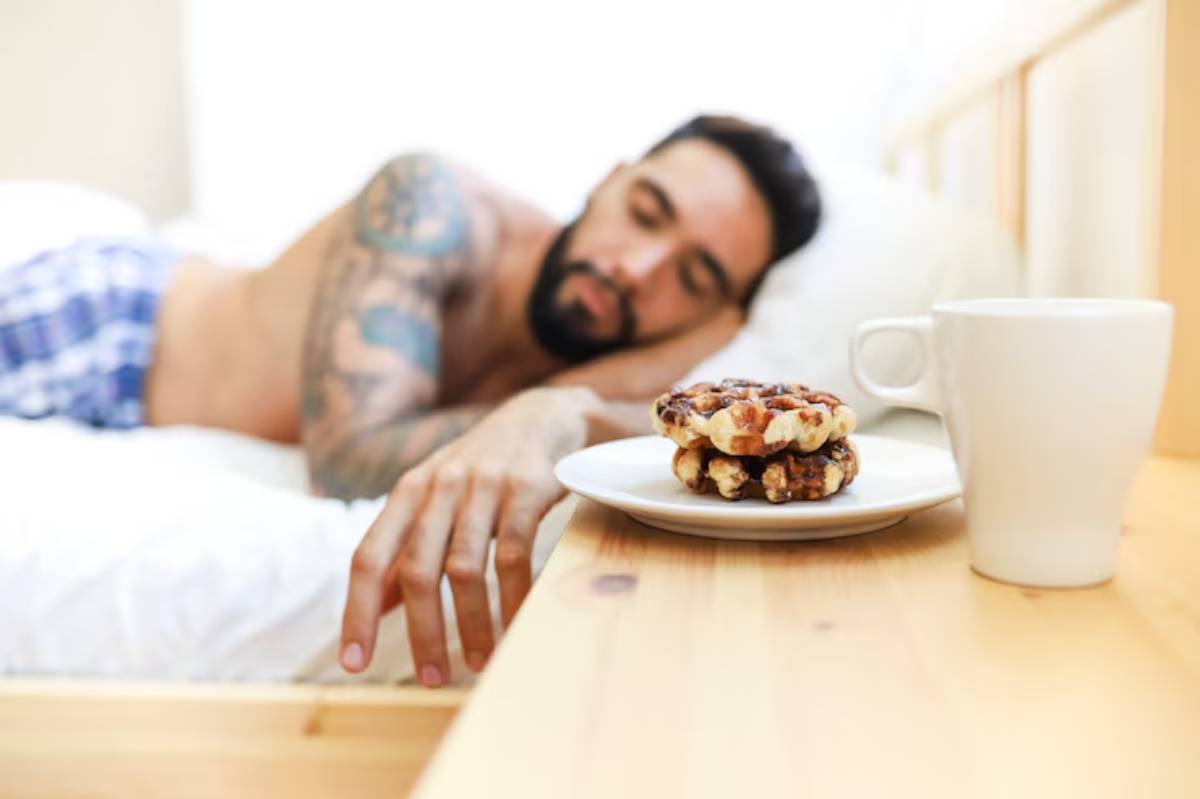The Health Blog

The Impact of Tryptophan-Rich Foods on Sleep
You’ve had a long day. You’re tired, ready to rest, but as soon as your head hits the pillow — your mind starts racing. Sound familiar? If so, you’re not alone. Many people struggle with falling asleep or staying asleep, even when they feel exhausted.
While stress, screens, and lifestyle all play a role, your diet might be missing something important — tryptophan. It’s a mouthful to say, but this natural nutrient plays a big part in helping you wind down and drift off.
In this article, you’ll learn what tryptophan is, how it helps your body sleep better, and which everyday foods can give you more of it — all without needing to take a single pill.
What Is Tryptophan, and What Does It Do?

Tryptophan is one of the building blocks your body uses to make protein. But its magic lies in what it turns into once inside you.
Here’s the simple breakdown:
- Your body uses tryptophan to make serotonin — a chemical that lifts your mood and helps you feel calm.
- That serotonin is then used to make melatonin — the hormone that tells your body it’s time to sleep.
So when you eat foods that are rich in tryptophan, you’re giving your body the tools it needs to relax and get ready for a good night’s rest.
The Sleep Benefits of Tryptophan

You don’t need to be a scientist to understand how tryptophan works. But if you’re curious, studies have shown that people who eat more tryptophan-rich foods tend to:
- Fall asleep faster
- Sleep longer
- Wake up less during the night
- Feel more rested in the morning
Unlike sleeping pills, which can leave you groggy or create habits you can’t break, tryptophan helps your body work the way it’s meant to — gently and naturally.
7 Everyday Foods That Are High in Tryptophan
You don’t need anything fancy or hard to find. Many common foods are great sources of tryptophan. Here are seven to add to your evening meals or snacks:
1. Turkey – The Classic Sleep Food
Turkey is often blamed for that sleepy feeling after a big holiday meal. And it’s no myth — turkey is packed with tryptophan. It’s also high in protein, which keeps you feeling full through the night.
Try it like this: Make a turkey sandwich with wholegrain bread for dinner. Add a slice of cheese for an extra tryptophan boost.
2. Eggs – Quick, Simple, and So Good for You
Eggs are easy to cook and full of nutrients, including tryptophan. They also contain vitamin D and choline, which support brain and nervous system health.
Try it like this: Have a boiled egg with toast in the evening. Or make scrambled eggs with spinach — another food that helps with sleep.
3. Cheese – Not Just a Comfort Food
Cheese isn’t just tasty — it’s also a great source of tryptophan and calcium. Calcium helps your body use tryptophan more effectively, which means better sleep.
Try it like this: Spread cottage cheese on crackers or toast. Or melt a bit of cheddar into your bedtime oats or pasta.
4. Nuts and Seeds – Small But Powerful
Almonds, peanuts, sunflower seeds, and pumpkin seeds are all full of tryptophan. They also have magnesium, which relaxes your muscles and helps you feel calm.
Try it like this: Have a small handful as a snack before bed. Or add seeds to yoghurt, porridge, or smoothies.
Bedtime tip: A banana with almond butter is a simple, tasty way to combine tryptophan, magnesium, and potassium — all great for sleep.
5. Soy Products – Great for Plant-Based Sleepers
If you don’t eat meat or dairy, soy is your friend. Soybeans, tofu, tempeh, and soy milk all have loads of tryptophan.
Try it like this: Stir-fry tofu with brown rice and veg. Or warm up a glass of unsweetened soy milk as a bedtime routine.
6. Oats – Comfort in a Bowl
Oats help release insulin, which allows tryptophan to reach your brain more easily. They also contain a little bit of melatonin.
Try it like this: Make a small bowl of warm oats with milk, banana, and a few nuts. It’s calming, filling, and helps you drift off naturally.
7. Bananas – The One-Fruit Sleep Wonder
Bananas are easy to eat, sweet, and rich in tryptophan, magnesium, and potassium — a triple hit for better rest.
Try it like this: Slice one into porridge or eat it on its own. You can also blend it into a bedtime smoothie with soy or almond milk.
Want Tryptophan to Work Better? Here’s How to Help It Along

Tryptophan does its job best when you give it the right support. Here’s how to make the most of it:
Pair It With Carbs
Carbs help tryptophan enter your brain. That’s why oats and toast pair well with tryptophan foods.
Eat at the Right Time
Don’t eat right before bed — it can lead to poor digestion. Aim for a light snack about 1 to 2 hours before sleeping.
Avoid Things That Work Against It
Caffeine, alcohol, sugar, and heavy meals can mess with your sleep. Try cutting those down, especially at night.
A Real-Life Story: Lisa’s Evening Switch-Up
Lisa, a 39-year-old copywriter, used to rely on tea and toast before bed. But she still had trouble sleeping and often woke up tired. After reading about tryptophan, she made one small change: she swapped her toast for a bowl of oats with milk, banana, and pumpkin seeds.
“It was such a small change, but within days I noticed I was falling asleep faster,” she said. “And I didn’t feel foggy when I woke up.”
Now, her nightly routine includes:
- A light walk after dinner
- A screen-free hour
- A tryptophan-rich snack
- A few deep breaths before bed
It’s not complicated — and it works.
Sample Sleep-Friendly Meal Plan
Need help getting started? Here’s a simple daily plan that includes tryptophan-rich foods:
Breakfast
- Scrambled eggs on wholegrain toast
- A banana
- Herbal tea
Lunch
- Turkey and cheese sandwich
- Carrot sticks and hummus
- Apple
Dinner
- Tofu stir-fry with brown rice
- Steamed broccoli
- Warm soy milk
Evening Snack
- Oats with almond milk, banana, and a sprinkle of seeds
Keep meals light in the evening, and don’t forget to wind down with something calming like chamomile tea or deep breathing.
A Small Change That Makes a Big Difference
If you’ve been battling with sleep and want a natural, gentle way to rest better, tryptophan could be your new best friend. By adding more of these simple foods to your meals and snacks, you’re helping your body do what it already knows how to do — fall asleep, stay asleep, and wake up feeling good.
No need for pills or complicated routines. Just real food, eaten with care and timing, can make all the difference.









